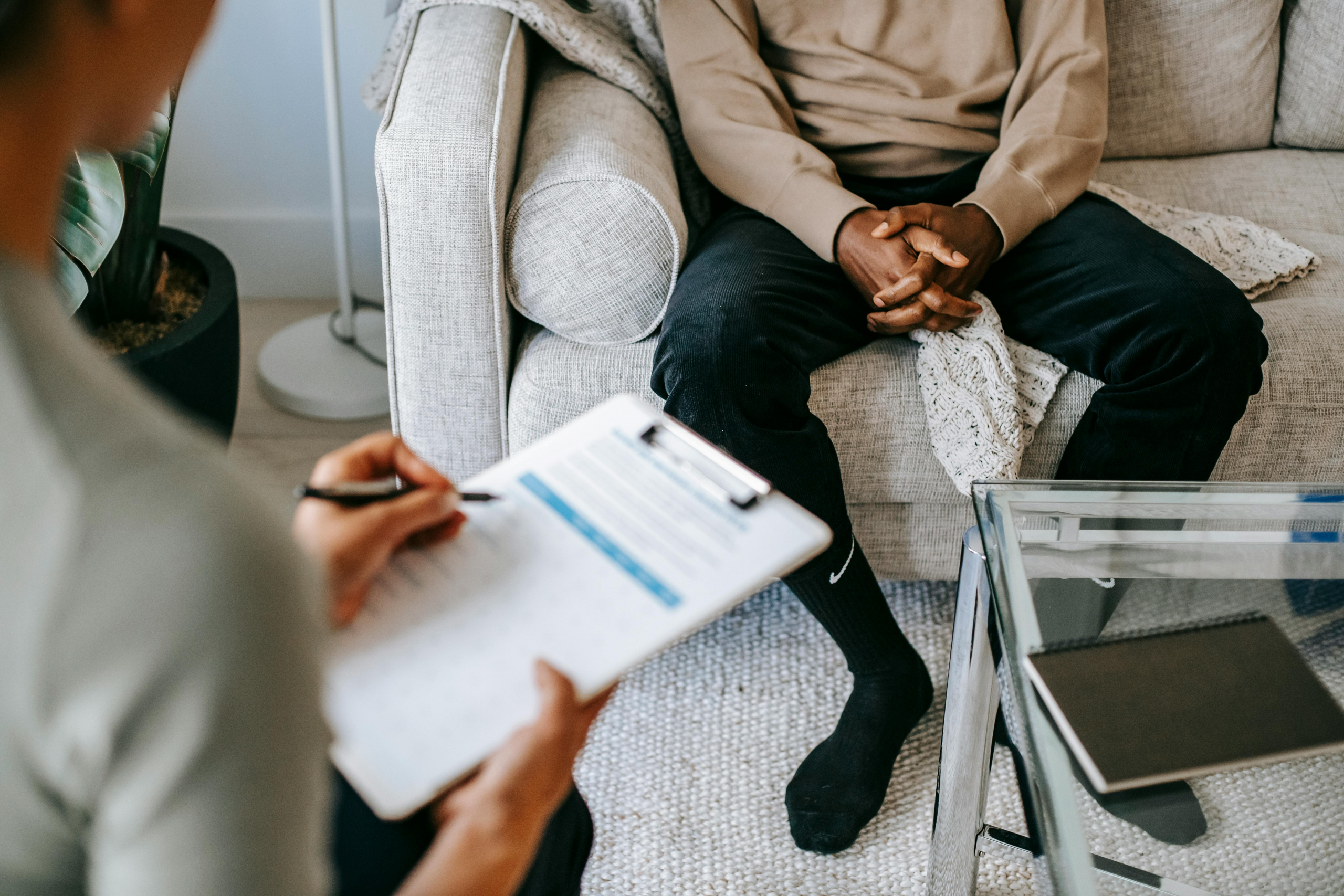Therapy As An Adoptive Parent And What I Learned
As an adoptive parent, I’m a big fan of therapy. My degree is in psychology. I have gone to therapy on and off my whole adult life. I know there are a lot of people who are wildly suspicious of the idea of going to talk to a stranger about their problems. It can feel too vulnerable. It can feel like it might not be helping when you come home from the first appointment and feel exhausted but are unsure why. I truly understand, I’m an adoptive parent with therapy experience.
I did EMDR therapy and while it was easily the therapy I saw the most progress with, I can’t say I’m eager to go ever again. Raw feelings were dredged up as I put memories where they needed to be, instead of where they were improperly stored. It made me feel like I had just run 10 miles without training first. I would need to sleep for a few hours afterward just to recover enough energy to make it through the rest of the day. The struggle is real.
It takes time and dedication to self-heal. Truthfully, some people aren’t ready for the newfound level of self-awareness. It’s a very uncomfortable sensation to realize that part of a problem, maybe even most of a problem can be yourself. Yeah, issues with friends, family members, genetics, and junky life history can be huge factors. But what if the biggest problem you’re facing is that you are in denial that you even have a problem?
Finding the Problem Through Therapy
I’ll give you an example. I have probably had ADHD since I was young. Many women my age have a similar experience of having been the daydreaming little bookworms in class that slid under the school counselors’ and teachers’ radar because the kids that looked like they had the worst time focusing were the little boys running around the room during math class. I also deal with depression and anxiety and probably have for an equal amount of time. As I said, I’ve seen therapists on and off for most of my adult life. I was in total denial that I had anything wrong with me. I justified my mental state and insisted the problems I was facing were situational.
That would have been the way of things if I hadn’t watched a YouTube video describing how ADHD tends to present in girls and women. Everything the video described was my life experience. It was overwhelming. I cried for about an hour afterward from both relief that I now had a name for the constant noise in my brain and anger that I had spent all this time “broken”. It was a whole thing—a whole thing that prompted a psychological evaluation led to a variety of diagnoses.
Now that I’m aware of what, at least, some of the issues are, and that some of them are just based on chemical imbalances, it’s easier to treat the symptoms. It’s also easier to avoid some of the pitfalls that I can slide into when I’m feeling vulnerable or alone.

Facing the Symptoms
My therapist has been my best resource for helping me reverse my negative self-talk. Maybe you, a fellow adoptive parent, have the same brain gremlins I do and can relate. I’m sure other adoptive parents with therapy would agree that having a professional help you with this problem is worth it. Has an ugly little voice ever popped up in your mind to tell you what a terrible parent you are when your kid has a bad time at school, the park, or in your living room? Mine likes to shout the lie “They would be better off with anyone besides you!”
After years of mental battle, I can usually drop-kick these jerks out by interrupting the thought and replacing it with the truth. It’s as easy and hard as it sounds. When, “I’m the worst mother in the world”, is playing on blast, I interrupt it and repeat, “I’m doing the best I can in this moment.” Sometimes I can’t do it alone and I text a friend for help.
Some other tidbits of wisdom, internal reminders, and coping mechanisms that have helped my mental health have been:
- “Are you omniscient? No? Then you could not have known _________ was happening. Therefore it cannot be your fault.”
- “You’re not omniscient. Saying ‘I should have known’ is illogical. You could not have known.
- “Yeah, you messed that up. Did you apologize? Did you do what you could to make it right? Okay then, let’s move on.”

Finding a Therapist That Clicks
I was told to practice self-affirmation. I fired a therapist once when this was her straight-out-the-gate response to my issues at the time. It felt like she was like spraying a super soaker at a house fire. You look silly doing it and you are doing nothing to help the situation. I didn’t need to write, “You’re doing great!” on my bathroom mirror with a dry-erase marker. I needed the names of three specialists to help my kids get the help they needed, a week of sleep, and a new recommendation for my antidepressant dosage.
So, I fired that therapist (which is my prerogative as the client regardless of how much it feels like I’m being mean). My current therapist waited until we were out of the weeds before she started suggesting little things to help me with my mental health daily. I did write “You’re doing the best you can,” “Today is a new day to try again!” and, “You’ve got this Mama!” on my bathroom mirror.
My sweet husband wrote “I love you and you’re the best” with hearts around it for me to find one day. It was very sweet. And as much as I rolled my eyes—every single time. I looked at it, or read my list of daily affirmations I had printed out and taped to the wall, and the little voice inside me that screamed hate got quieter and quieter. It stopped feeling dumb because it started being true. I was doing my best. I am loved and worthy of that love. Somewhere between the eye-rolling, heavy sighing, and thinking it was a dumb little ritual for my stupid mental health, it snuck in and made me feel a bit better.
Getting Started
Maybe you’re not there. Maybe you’re staring at a house fire with dollar tree water balloons and the dew on the grass trying to figure out how to fix it. Do you know how I fixed it? I called the professionals: the psychiatrists, counselors, doctors, and friends. When I was at my very darkest place, I took the risk and answered the, “What can I do to help you?” question that felt like a trap when a friend asked after admitting she felt a bit helpless. I swallowed my pride and said, “We need to travel right now because of the crisis we are navigating. Because of the turmoil our family is in, the housework has fallen very behind. Could you arrange for someone to clean our house while we are away so we can come home to a clean place?”
It felt like defeat. It felt like admitting I was bad at my job as a mom. But did they show up to help? Yes. A few dozen people worked together to turn our disaster of a house back into a clean, tidy, less stressful home. People took loads of laundry home to wash and fold. They went above and beyond what I asked. We came home to a sparkling house and the task of existing that felt insurmountable the week before, suddenly felt do-able. I could focus on the problems at hand, on my kids who were struggling—because I admitted I needed help. My therapist taught me that too. I hope you can get the help you need. We aren’t meant to live this life isolated.
Adoption can be beautiful but the struggles our families face because of it can be hard.






